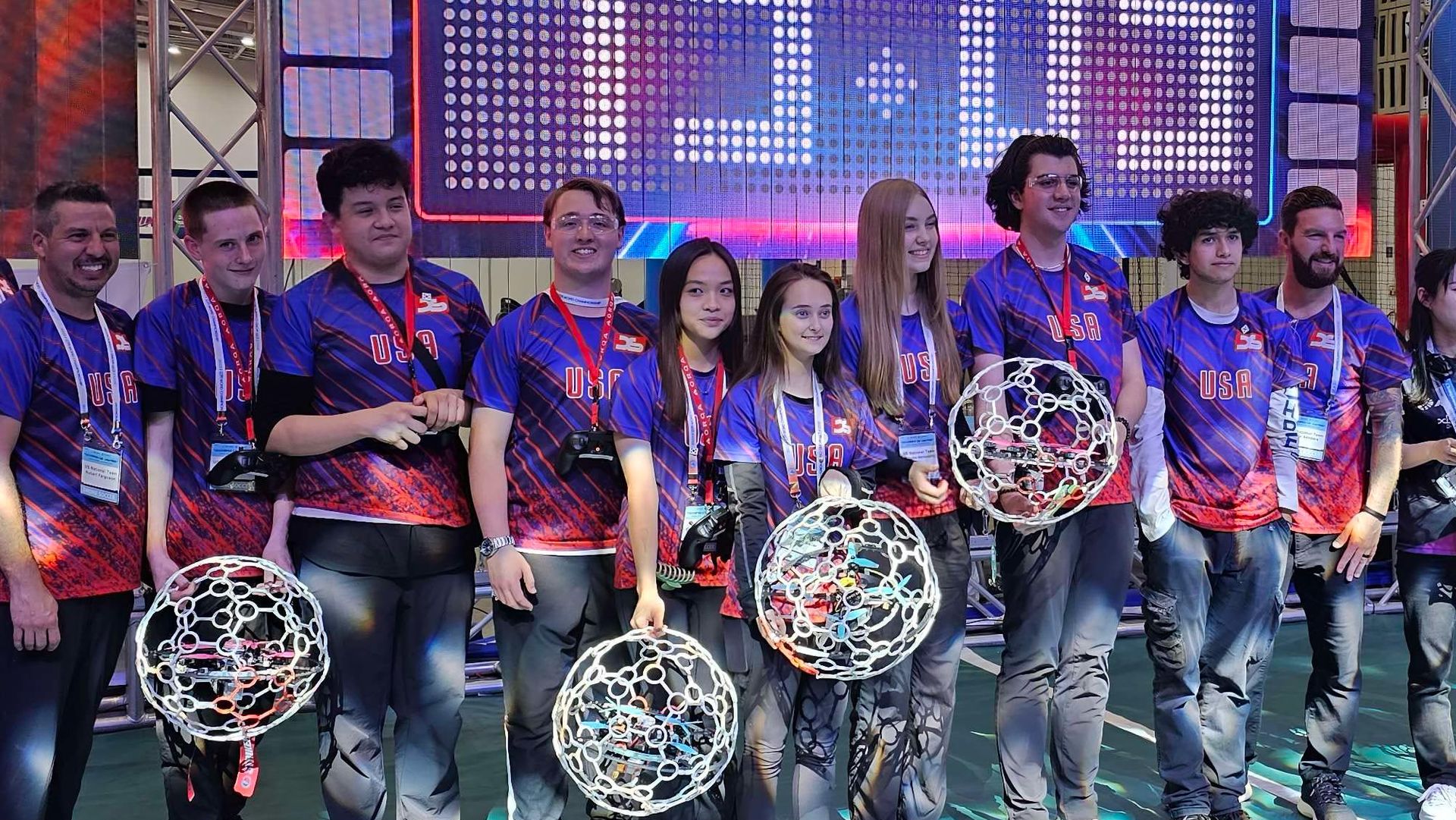Lifelong Impact of Drone Education
Drone education programs, such as Drone Soccer programs offered by CrewConcept, fill a crucial gap for reparable indoor drones that teach programming and engineering problem-solving. But by combining the technology with a high-engagement team competition - students find the peer support and confidence to pursue technical careers.
Xavier Culp is one such student from Westminster High School in a Title 1 district, who first learned about drones in what was previously a STEM CTE program. Through a Drone Soccer camp and professional development courses, their teacher Robert Ferguson earned an FAA drone license and was able to expand courses into aviation pathways for his students. Xavier and several of his classmates improved through local competitions and eventually attended tryouts for the U.S. National Drone Soccer Team to compete at the FIDA Drone Soccer World Championships in Incheon, South Korea. Xavier was the all-star Forward for his team which defeated every country except South Korea, finishing 3rd place in the world.
"I really didn't know how my life was going to end up, and now I can see a path." said Xavier, who graduated while competing in Korea and now attends Metro State University pursuing aerospace engineering.
Aviation Courses Provide Economic Mobility
Recent forecasts, including the Boeing Pilot and Technician Outlook 2023-2042, paint a clear picture of the growing demand in the aviation sector, which is criticall understaffed in technical careers. An estimated 602,000 new pilots and 610,000 new maintenance technicians are required by 2040. This surge is not just in traditional aviation roles but also in emerging sectors like Advanced Air Mobility (AAM), predicted to offer over 280,000 high-paying jobs in the U.S. by 2035. Addressing this demand necessitates a robust pipeline of skilled professionals, a goal achievable through the establishment of Career and Technical Education (CTE) pathways in schools. Earning a professional FAA license at the age of 16 can open doors into life-changing opportunities and economic mobility for students.

CrewConcept Drone Lab: A Model for Success
CrewConcept Drone Lab is a prime example of how educational institutions can effectively prepare students for aviation careers. This program blends professional development and curriculum based on Crew Resource Management principles, offering hands-on programs like Drone Soccer and Drone Racing. These high engagement tools not only make learning exciting but also trains skills used by air traffic controllers, aviation mechanics, and pilots.
Funding and Support
The good news is that funding for such initiatives is increasingly available. In the United States, CTE is funded with $1.4 billion annually, with additional support from state workforce development funds, DOD STEM initiatives, and the Department of Labor's Workforce Innovation and Opportunity Act (WIOA). Schools can leverage these funds to adopt sustainable, year-round engagement programs and establish a talent marketplace for the aviation industry.